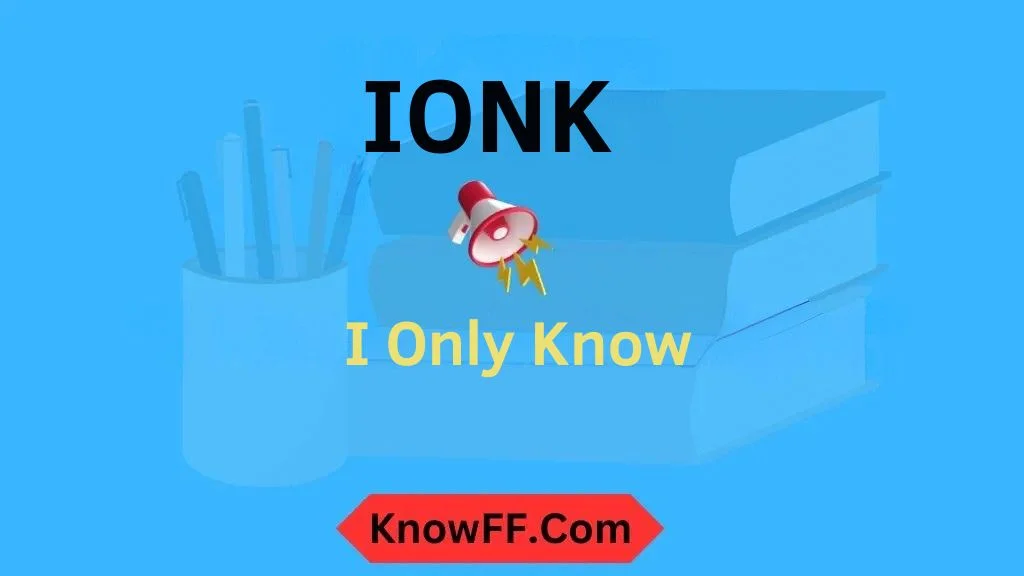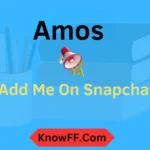In the digital age, abbreviations and slang evolve faster than ever, and “IONK” is one of those puzzling terms people stumble upon online.
Whether you saw it in a WhatsApp chat, a TikTok comment, or even a professional forum, you may have wondered: What does IONK mean in text? Its growing use across different platforms makes it a topic of curiosity for many.
While some internet acronyms have obvious roots, others—like IONK—require a deeper look into context, background, and usage. In this article, we’ll break down the meaning of IONK, explore where it’s used, discuss its relevance in different fields, and clear up common misunderstandings.
By the end, you’ll not only know what IONK means but also how to use or respond to it effectively.
Meaning & Definition
IONK in text is commonly understood as “I Only Know” or “I Only Knew.” It’s an informal abbreviation people use when they’re expressing limited knowledge about a subject or when admitting that their information is partial.
For instance, in a conversation about trending news, someone might say, “IONK the full story, but I heard it was serious.” The phrase simplifies communication by cutting down on extra words while still conveying humility or uncertainty.
Sometimes, IONK can also appear in creative or humorous contexts where users intentionally use abbreviations for style or to match internet culture. Its meaning can slightly shift based on tone, making context key for accurate interpretation.
Background
Internet slang like IONK has roots in early texting culture, where character limits on platforms like SMS or Twitter encouraged users to shorten phrases. Acronyms like LOL, BRB, and IONK became efficient ways to communicate quickly. Over time, such abbreviations spread to online gaming, chat rooms, and social media platforms.
While IONK doesn’t have a long-documented history compared to older acronyms, its rise mirrors the way digital communication evolves. It reflects a broader trend: users value speed, convenience, and shared understanding. The fact that IONK isn’t universally recognized also makes it somewhat niche—creating a sense of in-group language among certain online communities.
Usage in Different Contexts (Chat, Social Media, Professional Fields)
In casual chats, IONK is a quick response:
- Friend 1: “Do you know when the movie releases?”
- Friend 2: “IONK, maybe next week.”
On social media, particularly platforms like TikTok or Twitter, creators might use IONK in captions or comments to express uncertainty without sounding overly formal. For example: “IONK if this trend is still cool, but here’s my version.”
In professional settings, however, IONK is less appropriate. While it may appear in informal workplace chats among colleagues, it’s not a term you’d use in official emails or reports. Instead, professionals would say, “I’m not sure” or “I don’t have that information yet.”
Meaning in Chat, WhatsApp, Instagram, TikTok
- Chat & WhatsApp: IONK acts as a shorthand for quick replies, especially in group discussions.
- Instagram: In comments or DMs, it’s often used humorously or playfully.
- TikTok: Content creators might use IONK in captions to admit they’re not fully confident about a trend or fact, which can make them appear relatable to followers.
Meaning in Physics, Medical, and Aircraft Terminology
Although IONK is primarily internet slang, it sometimes gets mistaken for technical terms in specialized fields:
- Physics: It doesn’t hold a standard meaning, but some may confuse it with “ion k” (related to charged particles).
- Medical Terminology: No official usage, though some medical professionals might jokingly adopt abbreviations in casual chats.
- Aircraft or Engineering Fields: Occasionally, workers might repurpose abbreviations for internal communication, but IONK isn’t an established technical acronym.
This highlights the importance of verifying context—especially in scientific or technical discussions where abbreviations carry formal definitions.
Common Misconceptions
One misconception is that IONK has a fixed, universally accepted meaning in professional fields—it doesn’t. Another is assuming it’s always sarcastic or dismissive. While tone can sometimes make it sound flippant, most users employ IONK simply to express uncertainty or partial knowledge.
Some also confuse IONK with ION (“In Other News”) or INK (“I Never Knew”), which can lead to misinterpretations. Recognizing the subtle differences prevents misunderstandings.
Similar Terms & Alternatives
If you’re unsure about using IONK, there are plenty of alternatives:
- IDK (I Don’t Know) – More widely understood.
- I’m not sure – Formal and polite.
- Unsure/No idea – Simple and clear.
- I Only Knew – Used retrospectively for past events.
These variations can be chosen depending on your audience and the tone you’re aiming for.
How to Respond to It
When someone uses IONK in conversation, your response should match the tone and context. For example:
- Casual Chat: “Gotcha, I’ll check it out.”
- Social Media: “Same here, IONK either!”
- Clarification: “No worries, I’ll look it up.”
In formal environments, you might gently steer the conversation toward clearer communication by avoiding slang.
Differences From Similar Words
IONK vs. IDK: IDK is more universally recognized, while IONK feels more niche and personal.
IONK vs. INK: INK suggests discovering something for the first time (“I Never Knew”), while IONK implies already knowing or knowing only partially.
IONK vs. ION: ION means “In Other News,” which is unrelated but visually similar.
Understanding these differences ensures your messages are interpreted correctly.
Relevance in Online Conversations & Dating Apps
IONK’s informal nature makes it fit seamlessly into casual platforms like Tinder, Bumble, or Hinge.
For instance, if someone asks about a trending restaurant or song, replying with “IONK” can feel playful and approachable. Its niche status can even serve as an icebreaker, sparking curiosity or humor.
In group chats or online forums, using IONK can signal that you’re keeping the conversation lighthearted rather than overly formal.
Conclusion
IONK meaning in text primarily represents phrases like “I Only Know” or “I Only Knew,” capturing the essence of quick, casual communication.
Its usage reflects modern online culture, where abbreviations help people connect efficiently and with personality.
While not a formal term, IONK thrives in informal spaces—chats, TikTok captions, or even dating app conversations.
Understanding its meaning, context, and alternatives can help you avoid confusion and respond appropriately. As with any slang, tone and audience matter most, ensuring your messages are clear and respectful.











